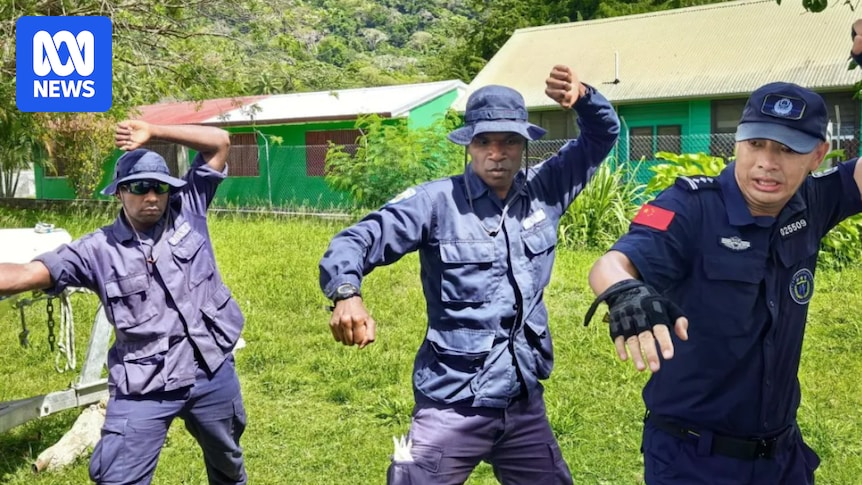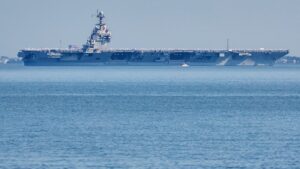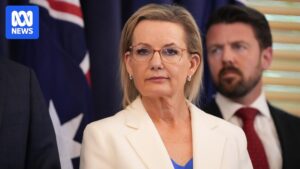
Vanuatu has announced plans to formalize a new policing agreement with China, while the significant Nakamal pact with Australia remains unsigned. The decision follows a meeting between Vanuatu’s Police Minister Andrew Napuat and China’s Minister of Public Security Wang Xiaohong in Beijing, occurring just days after Australian Prime Minister Anthony Albanese’s visit to Port Vila ended without finalizing the $500 million Nakamal Agreement.
China has already increased its police equipment donations to Vanuatu, with its training teams becoming more prominent. Recently, Chinese officers made their inaugural visit to the island of Malekula. Minister Napuat revealed that China has agreed to provide an additional 20 police motorcycles, 20 drones, and other equipment, including INTERPOL systems for international police communication.
China’s Growing Influence in Vanuatu
Vanuatu media reports estimate the total value of China’s equipment donation at approximately $700,000, a modest sum compared to Australia’s security assistance. However, Minister Napuat emphasized that China’s support aligns with Vanuatu’s key security priorities, focusing on climate change, transnational crime, cybercrime, traffic management, and general policing duties.
Minister Napuat clarified that Vanuatu has existing Memoranda of Understanding (MoUs) and Cooperation Agreements on policing with several countries, including Australia, New Zealand, France, the United Kingdom, and Papua New Guinea. China remains the only major partner without a formalized MoU. “Our two governments wish to formalize a Police MoU similar to existing MoUs to better coordinate and manage different areas of partnership in the policing sector with all of our partners,” he stated.
“Vanuatu has already established Memorandum of Understanding [MoU] and Cooperation Agreements on policing with Australia, New Zealand, France, the United Kingdom [UK], and PNG, while China is the only country with which we still need to formalize a MoU.” – Andrew Napuat, Vanuatu’s Police Minister
Implications for Regional Security
The announcement is likely to stir concerns in Canberra, as Australia has been working on agreements to strengthen its strategic position in the Pacific and counter China’s influence in regional security. Australia has consistently argued that Pacific security should be managed by the “Pacific family” without external interference from China.
Despite these tensions, Minister Napuat insisted that the policing agreement with China is independent of the ongoing Nakamal negotiations with Australia. “These [policing] MoUs are not the same as the Nakamal Security Agreement currently being negotiated between Vanuatu and Australia,” he asserted.
Vanuatu’s Prime Minister Jotham Napat previously indicated that the Nakamal Agreement’s delay was due to concerns from some ministers about clauses limiting external investment in critical infrastructure. However, Vanuatu has firmly denied allegations that China is pressuring it not to sign the agreement. Government spokesperson Kiery Manassah described such claims as “absurd” and “an insult to the collective wisdom of Vanuatu leaders.”
Regional Dynamics and Future Prospects
The broader regional context sees several Pacific ministers and senior officials, including those from the Solomon Islands, attending the Global Public Security Cooperation Forum in Lianyungang, Jiangsu. Solomon Islands Police Minister Jimson Tanangada praised China’s expanded police training and support, highlighting the special relationship between the two countries.
“Solomon Islands and China have a very special relationship, and in terms of our security cooperation, we value it as a very special one.” – Jimson Tanangada, Solomon Islands Police Minister
As Vanuatu navigates its international partnerships, it remains committed to securing assistance from all partners while prioritizing its national interests. Minister Napuat emphasized that Vanuatu is not a “proxy in a geopolitical game” and that its national interest must come first.
The unfolding developments in Vanuatu’s security agreements underscore the complex dynamics at play in the Pacific region, as nations balance sovereignty, strategic partnerships, and regional security concerns. The outcomes of these negotiations will likely have lasting implications for the geopolitical landscape in the Pacific.





